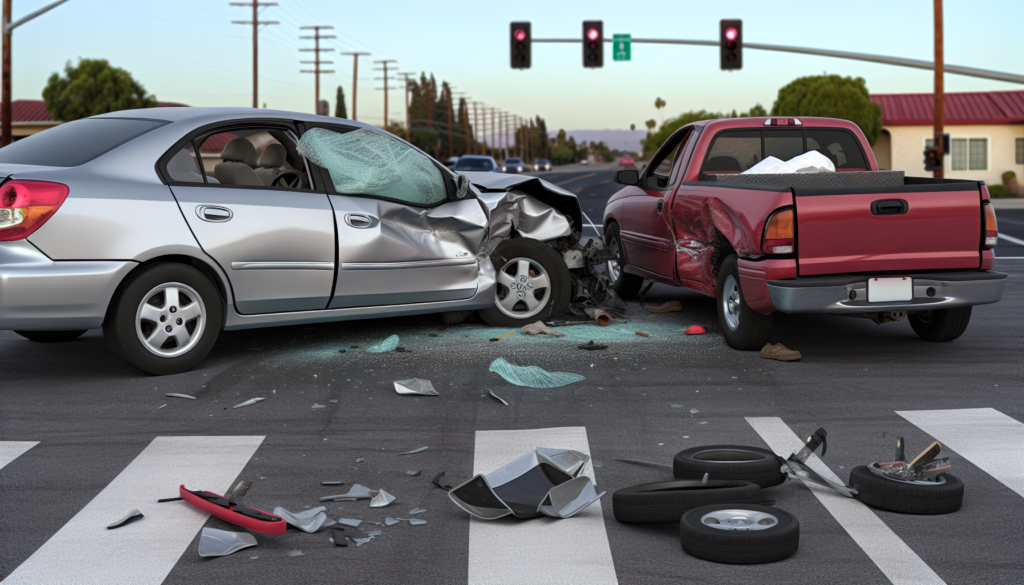
Estimated reading time: 7 minutes
If you’ve been injured in an accident in Virginia, understanding contributory negligence is a very important aspect to your personal injury claim. Simply put, if you’re found even a tiny bit at fault for the accident, your opportunity to be compensated is gone. Let’s break down this tricky law that could make or break your injury case.
The Key Points
In Virginia, thanks to the pure contributory negligence rule, even 1% fault on your part means zero compensation. Most other states have more flexible comparative negligence laws.
There are a couple exceptions like the common carrier and last clear chance doctrines that can still allow some recovery under certain circumstances.
You’ll definitely need a skilled lawyer on your side in Virginia because proving zero fault or using exceptions to get damages is extremely difficult without legal expertise.
Virginia’s Unique Contributory Negligence Rule
While most states play by comparative negligence rules, Virginia sticks to its strict contributory negligence law. Again, this means if you’re deemed even 1% responsible for your injury, you get nothing in compensation under Virginia negligence laws. Even a minor role in the accident can crush your chances.
This tough rule contrasts sharply with states allowing shared fault through comparative negligence approaches. Virginia’s unique stance highlights why having a skilled injury lawyer is crucial when dealing with contributory negligence complexities.
Pure Contributory Negligence Explained
Virginia’s pure contributory negligence can be a difficult hurdle for accident victims. Imagine this – you get hit by a drunk driver but were slightly speeding, so you get zero damages just for that minor fault. Any degree of blame on you, even a tiny amount, eliminates your right to recover compensation under this strict rule.
The results? You get stuck with medical bills and losses through no real fault of your own just because of contributory negligence. This makes getting an experienced personal injury attorney ASAP after an accident absolutely essential.
Exceptions That Could Help Your Case
While Virginia’s contributory negligence is harsh, there are some exceptions that may provide relief:
Common Carrier Exception – If you’re a passenger injured on public transit and the carrier violated safety rules, you may be able to recover damages despite contributory negligence.
Last Clear Chance Doctrine – If the defendant had a final opportunity to prevent the accident but failed due to negligence, you may have a case even with partial fault.
These limited exceptions offer a glimmer of hope when contributory negligence would otherwise bar your claim entirely.
Comparative Negligence vs. Contributory Negligence
It’s critical to understand the difference between comparative and contributory negligence models:
- Comparative Negligence: Your compensation gets reduced by your percentage of fault. So 30% fault means 70% of damages recovered.
- Contributory Negligence: Any fault by you means zero compensation.
Most states embrace comparative models allowing recovery despite some fault, unlike the Commonwealth that follows Contributory Negligence model.
We Help Accident Victims Overcome Contributory Negligence in Virginia Personal Injury Cases
Despite the strict laws in Virginia, it’s not all doom and gloom. There are ways to overcome contributory negligence in Virginia personal injury cases. The key lies in successfully countering contributory negligence defenses by disproving the claims of fault assigned to the plaintiff.
Seeking counsel from a personal injury lawyer quickly after an accident is crucial, as delays can hinder the plaintiff’s ability to confront contributory negligence claims and file a personal injury claim.
Proving Fault in Virginia Accidents
Proving fault in Virginia accidents is a critical step towards overcoming contributory negligence claims. This involves establishing that the other driver owed a duty of care, breached that duty, and caused the injuries suffered. Evidence of reckless or distracted driving, impaired driving, or failure to attend to the road can help establish the other driver’s negligence.
Building a strong case requires gathering evidence such as police reports, witness contact information, and photographs of the accident scene. Skilled car accident lawyers can assist in collecting necessary evidence such as police and medical reports, CCTV footage, witness statements, and analyzing vehicle damage.
It’s also crucial to seek medical attention immediately and maintain consistent medical care to substantiate injury claims. This process needs to be initiated promptly due to the two-year statute of limitations in Virginia.
Challenging Contributory Negligence Claims
Once evidence is collected, the next step is challenging contributory negligence claims. This can be done by:
Presenting new evidence, which can include police reports, photographs, or witness accounts
Scheduling a meeting with an insurance adjuster
Presenting compelling evidence
Requesting police report amendments
These actions can help counter contributory negligence claims and establish a contributory negligence defense.
But presenting new evidence is not a solitary battle. Acquiring representation from a skilled personal injury attorney is essential. They evaluate claims and defenses and counter contributory negligence accusations levied by the opposing side. With the right legal assistance, a plaintiff can overcome the hurdles posed by Virginia’s contributory negligence laws.
Hiring the Best Lawyer for Virginia Personal Injury Cases
Given the complex nature of Virginia’s contributory negligence laws, seeking legal assistance in personal injury cases is not just helpful—it’s crucial. Personal injury attorneys in Virginia, like the experienced team here at BenGlassLaw, can play a significant role in the investigation of accidents, collection of evidence, and navigation of the state’s strict contributory negligence laws. They provide a clearer understanding of contributory negligence and help determine if an injury qualifies for recovery.
Moreover, skilled attorneys at a personal injury law firm don’t just negotiate for fair compensation with the at-fault driver; they also represent the client’s interests at trial if the need arises. The importance of having a proficient Virginia personal injury lawyer by your side cannot be overstated in such cases, and that’s why Virginia personal injury lawyers are essential for your legal journey.
Real-Life Examples of Virginia Contributory Negligence Cases

Perhaps the best way to understand the impact of Virginia’s contributory negligence laws is to look at some real-life examples. One such instance involved a person who was hit by a car that drifted into their lane. However, because they were also speeding, they were barred from recovering damages under Virginia’s contributory negligence law. Similarly, an individual who did not adhere to traffic rules while getting into an accident with an intoxicated driver couldn’t recover damages.
Conversely, there are cases where exceptions to Virginia’s contributory negligence laws have come into play. In the case of Coutlakis v. CSX Transportation, Inc., et al., Virginia courts applied the ‘last clear chance’ doctrine, allowing a party to recover despite having contributed to the incident. These cases clearly reflect the stringent enforcement of contributory negligence, significantly influencing the results of personal injury cases in Virginia.
The Bottom Line
The impact of these laws on accident victims can be substantial, often resulting in claim denials or case dismissals despite the victim only contributing minimally to the accident. But with the right legal strategy and skilled representation, you can still get a fair outcome.
If you’re an accident victim, take quick action – gather evidence, consult an attorney, and let them tackle the contributory negligence challenges head-on. A bit of preparation can make all the difference in protecting your rights under Virginia’s unique personal injury laws.
Questions About Virginia Negligence Law? Contact Us Today
BenGlassLaw, Personal Injury & Long-Term Disability Law Firm: What Makes Us Unique
The BenGlassLaw process is designed to make this as easy as possible for you and your loved ones so that you can focus on recovery. For every single personal injury case that our team takes on, we have three promises that we are always focused on (and they’re what sets us apart from other firms):
1. We find all the pots of insurance money that might be available to you and pull as much money as possible out of those pots.
We are great at finding insurance money. Our lawyers do a thorough examination of available insurance coverage by looking at: the driver, the owner of the car, family members, employers, your auto policy, and your health insurance. We leave no stone unturned to find every dollar that we can.
2. Help you keep as much of that money as possible.
Some health insurance plans are entitled to reimbursement at the end of injury cases. Some health insurance plans say that they are, even when they aren’t! We help you keep as much of your money as we can. If you do not have health insurance, we can often negotiate discounts with your medical providers.
3. Make this process as simple and easy for you as we can.
The auto insurance industry wants this process to be complicated. They want it to be difficult for you to understand who should pay, when they should pay, and how much they should pay. Our team of lawyers simplifies this whole process for you. After you hire us, we stop the insurance company from calling you and your only job is to get medical care and tell us where you got it. We take care of everything else.
Last but not least, most people think that they must pay an attorney upfront to engage their services. That’s not the case with BenGlassLaw. We don’t get paid unless we get money for you.
